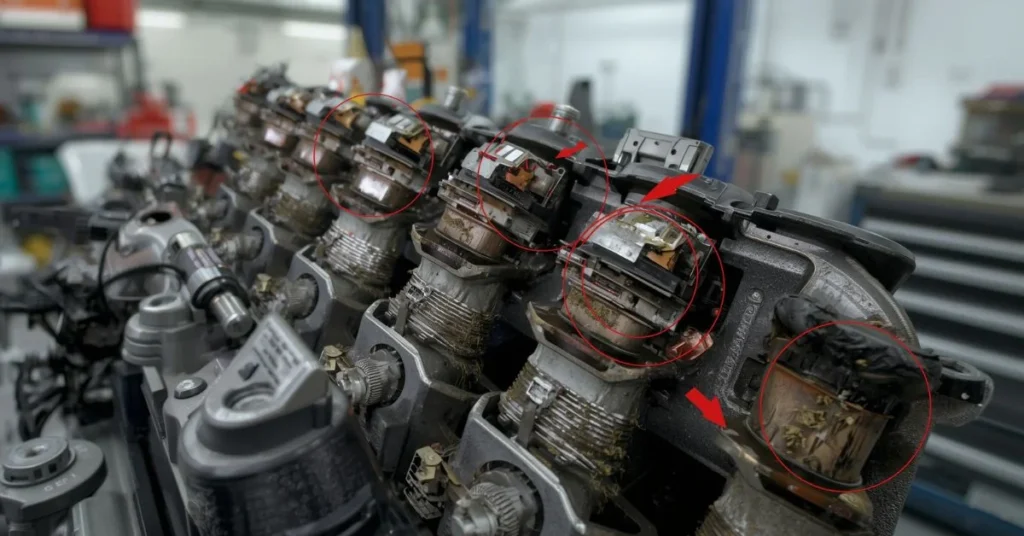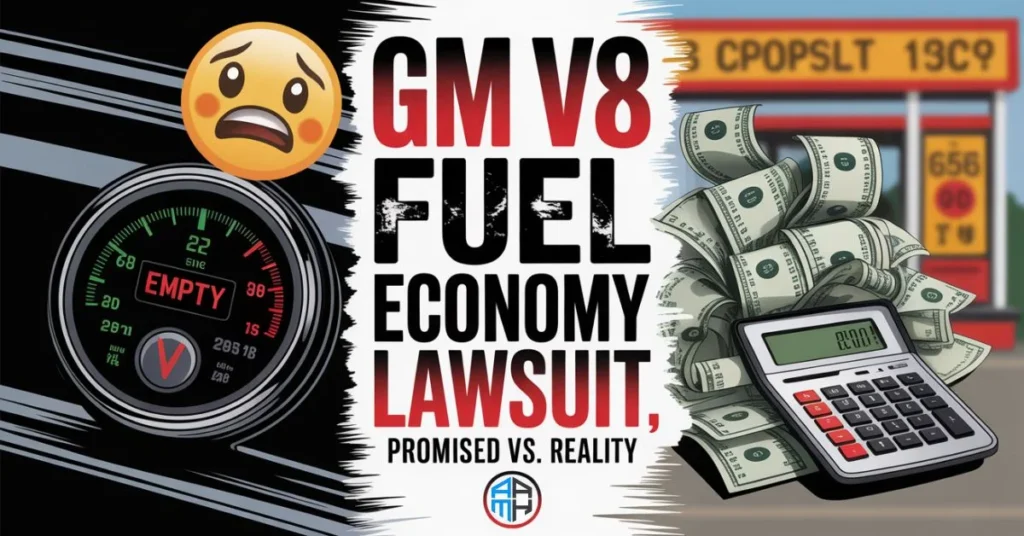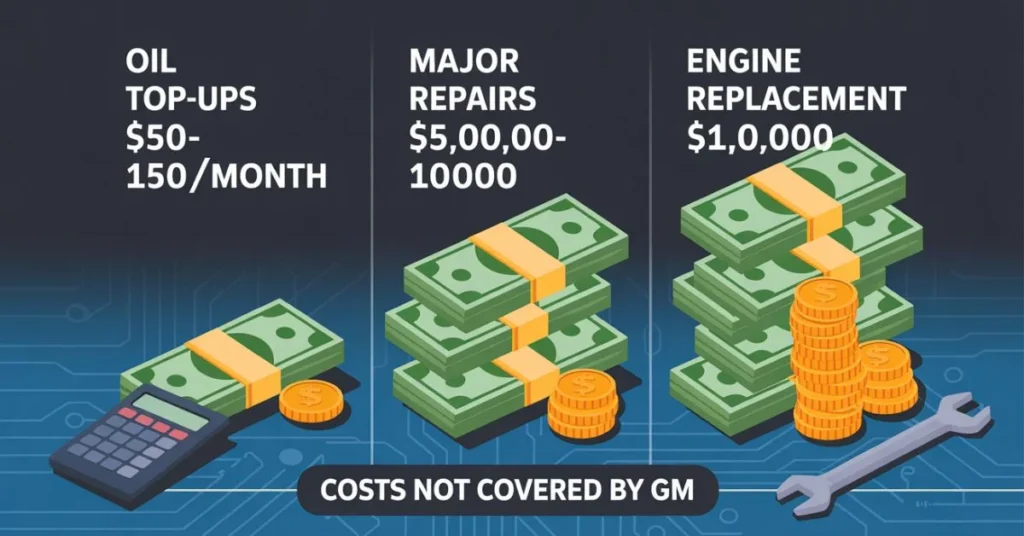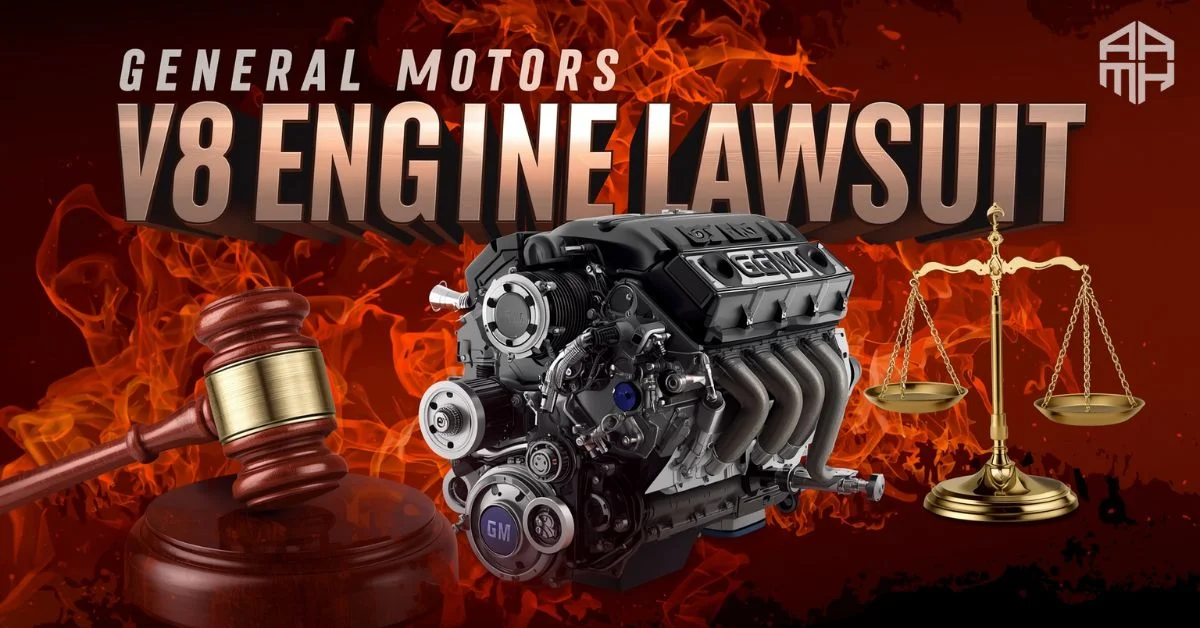The automotive industry has witnessed numerous legal battles over the years, but few have garnered as much attention as the General Motors V8 Engine Lawsuit. This class-action litigation has raised significant concerns among GM vehicle owners and has brought to light critical issues regarding engine reliability, manufacturer responsibility, and consumer rights. As thousands of drivers face unexpected repair costs and potential safety hazards, understanding the intricacies of this lawsuit becomes essential for anyone who owns or is considering purchasing a GM vehicle equipped with the affected V8 engines. For those looking to understand GM LS engines specs and performance, it’s crucial to know which models may be impacted by these legal challenges.
The General Motors V8 Engine Lawsuit represents more than just another corporate legal challenge—it’s a stark reminder of how manufacturing defects can impact everyday consumers who rely on their vehicles for work, family, and daily transportation. This comprehensive guide will explore the details of the lawsuit, the affected engines, consumer rights, and what GM owners should know moving forward.

Understanding the General Motors V8 Engine Lawsuit
The General Motors V8 Engine Lawsuit centers on allegations that certain GM V8 engines contain a manufacturing defect that causes excessive oil consumption and potential engine failure. The plaintiffs in this class-action lawsuit claim that General Motors was aware of the defect but failed to adequately inform consumers or provide appropriate remedies.
The lawsuit specifically targets GM’s Active Fuel Management (AFM) and Dynamic Fuel Management (DFM) systems, which are designed to improve fuel efficiency by deactivating cylinders during light-load driving conditions. Similar issues have led to other GM recalls for engine failure in recent years, highlighting ongoing concerns about manufacturing quality. While these technologies sound innovative on paper, numerous vehicle owners have reported that these systems contribute to accelerated engine wear, leading to costly repairs and, in severe cases, complete engine failure.
The Core Allegations
The General Motors V8 Engine Lawsuit includes several key allegations:
- Defective Design: The AFM/DFM systems allegedly cause improper lubrication, leading to premature wear of engine components
- Excessive Oil Consumption: Many affected vehicles consume oil at rates far exceeding normal specifications
- Failure to Disclose: GM allegedly knew about the defect but did not warn consumers or issue adequate recalls
- Economic Damages: Vehicle owners have incurred substantial repair costs, often ranging from $5,000 to $15,000 or more
Affected General Motors V8 Engines and Vehicles
The lawsuit primarily affects vehicles equipped with Generation V (Gen V) small-block V8 engines featuring AFM or DFM technology, including popular 5.3 LS engines and 6.2 LS engines found in many trucks and SUVs.
Engines Involved in the Lawsuit
| Engine Code | Displacement | Technology | Common Issues |
| L83 | 5.3L V8 | AFM | Excessive oil consumption, lifter failure |
| L84 | 5.3L V8 | DFM | Oil consumption, valve train problems |
| L86 | 6.2L V8 | AFM | Lifter collapse, engine knock |
| L87 | 6.2L V8 | DFM | Oil pressure issues, piston ring wear |
| LT1 | 6.2L V8 | AFM/DFM | Excessive oil use, valve guide wear |
Vehicle Models Potentially Affected
The General Motors V8 Engine Lawsuit encompasses a wide range of popular GM vehicles manufactured between approximately 2014 and 2023, including:
- Chevrolet: Silverado 1500 engine, Tahoe engine, Suburban engine, Corvette Engine, Camaro Engine
- GMC: Sierra 1500, Yukon, Yukon XL
- Cadillac: Escalade-V, CT4-V, CT5-V
It’s important to note that not all vehicles within these model years and lines are affected, as some may have been equipped with different engine configurations or may not exhibit the defect.

Common Problems Reported by Owners
Vehicle owners involved in the General Motors V8 Engine Lawsuit have reported a consistent pattern of issues that significantly impact vehicle performance, reliability, and safety.Complete engine failure often requires expensive repairs or replacement. Vehicle owners facing this situation may need to consider options like rebuilt vs new engine replacements to address catastrophic damage.
Primary Engine-Related Complaints
Excessive Oil Consumption:
- Oil levels dropping between oil changes requiring frequent top-ups
- Some vehicles consuming one quart of oil every 1,000-2,000 miles
- Blue smoke from exhaust indicating oil burning
- Oil warning lights activating prematurely
Lifter and Valve Train Failures:
- Collapsed or stuck lifters causing engine misfires
- Distinctive ticking or tapping noises from the engine
- Reduced engine performance and power loss
- Check engine lights with multiple diagnostic trouble codes
Complete Engine Failure:
- Catastrophic engine damage requiring complete replacement
- Sudden loss of power while driving, creating safety hazards
- Metal debris in oil indicating internal engine damage
- Seized engines requiring expensive repairs or replacement

GM V8 Lawsuit Fuel Economy
The GM V8 lawsuit fuel economy controversy has revealed that defective Active Fuel Management (AFM) and Dynamic Fuel Management (DFM) systems not only cause engine damage but also fail to deliver promised fuel efficiency. Vehicle owners report significantly lower miles per gallon (MPG) than EPA estimates, adding financial burden to already costly engine repairs.
How AFM/DFM Affects Fuel Economy
The AFM and DFM systems were designed to improve fuel efficiency by deactivating cylinders during light-load conditions. However, the GM V8 lawsuit fuel economy claims suggest these systems malfunction, causing:
- Inconsistent cylinder deactivation leading to poor fuel consumption
- Excessive oil burning reducing engine efficiency
- Carbon buildup restricting airflow and decreasing MPG
- Faulty sensors preventing optimal fuel management
Fuel Economy Comparison: Promised vs. Reality
| Vehicle Model | Engine | EPA Estimated MPG (Combined) | Owner Reported MPG | Fuel Economy Loss |
| Chevy Silverado 1500 | 5.3L V8 AFM | 18 MPG | 14-15 MPG | 17-22% Loss |
| GMC Sierra 1500 | 5.3L V8 AFM | 18 MPG | 13-15 MPG | 17-28% Loss |
| Chevy Tahoe | 5.3L V8 AFM | 17 MPG | 13-14 MPG | 18-24% Loss |
| GMC Yukon | 6.2L V8 DFM | 16 MPG | 12-14 MPG | 13-25% Loss |
| Cadillac Escalade | 6.2L V8 DFM | 16 MPG | 13-14 MPG | 13-19% Loss |
Financial Impact of Poor Fuel Economy
Beyond repair costs, owners affected by the GM V8 lawsuit fuel economy issues face ongoing expenses:
- Increased fuel costs: $500-$1,200+ annually
- More frequent fill-ups: 2-4 additional per month
- Reduced resale value: 10-20% depreciation
- Failed emissions tests in some states
The combination of excessive oil consumption, engine repairs, and poor fuel efficiency makes the GM V8 lawsuit fuel economy claims a critical concern for current and prospective GM vehicle owners. If you’re experiencing lower-than-expected MPG alongside engine issues, document your fuel consumption carefully and consider joining the class action lawsuit.
Legal Basis and Consumer Rights
The General Motors V8 Engine Lawsuit is grounded in several legal theories that aim to protect consumer rights and hold manufacturers accountable for defective products.
Legal Claims in the Lawsuit
Breach of Warranty: Plaintiffs argue that GM breached both express and implied warranties by selling vehicles with known defects that prevent them from operating as advertised.
Violation of Consumer Protection Laws: The lawsuit alleges violations of state consumer protection statutes, which prohibit unfair and deceptive business practices.
Fraudulent Concealment: Plaintiffs claim GM knowingly concealed information about the engine defects from consumers, preventing them from making informed purchasing decisions.
Unjust Enrichment: The lawsuit argues that GM profited unfairly by selling defective vehicles at full price while avoiding the costs of properly addressing the widespread defect.
What GM Vehicle Owners Should Do
If you own a vehicle potentially affected by the General Motors V8 Engine Lawsuit, taking proactive steps can protect your rights and potentially strengthen any future claims.
Recommended Actions for Affected Owners
Document Everything:
- Keep detailed records of all service appointments and repairs
- Save receipts for oil purchases and top-ups
- Photograph oil levels and any unusual engine conditions
- Note dates, mileage, and symptoms of any issues
Report Issues to GM:
- Contact your authorized GM dealership to report problems
- Request written documentation of complaints and diagnostic findings
- Ensure all issues are recorded in GM’s customer database
- Request repairs under warranty whenever applicable
Monitor the Lawsuit:
- Stay informed about developments in the General Motors V8 Engine Lawsuit
- Consider consulting with an attorney specializing in automotive litigation
- Check if your vehicle qualifies for inclusion in the class action
- Be aware of deadlines for joining the lawsuit or filing individual claims
Consider Independent Inspections:
- Have a qualified independent mechanic inspect your engine
- Request oil consumption tests if you suspect issues
- Get second opinions on recommended repairs
- Document findings from independent mechanics
Understanding proper car maintenance can help you identify problems early.
GM’s Response and Remedial Actions
General Motors has addressed concerns related to the lawsuit through various channels, though critics argue the responses have been insufficient.
GM’s Position
GM has maintained that the oil consumption rates in question fall within normal specifications according to their engineering standards. The company has issued several Technical Service Bulletins (TSBs) addressing AFM/DFM-related issues, but these have not satisfied many vehicle owners who continue to experience problems.
Some dealerships have performed software updates and component replacements under warranty, while others have denied claims, citing that oil consumption falls within acceptable parameters. This inconsistency has frustrated consumers and added complexity to the General Motors V8 Engine Lawsuit.

Financial Impact on Consumers
The economic burden on vehicle owners affected by the General Motors V8 Engine Lawsuit extends far beyond the initial purchase price.
Costs Associated with Engine Defects
Major engine repairs or complete engine replacement can cost anywhere from $10,000 to $20,000, representing a significant financial burden for vehicle owners who expected reliability from their GM vehicles.
Immediate Expenses:
- Frequent oil purchases: $50-$150 per month
- Diagnostic fees: $100-$200 per visit
- Minor repairs: $500-$2,000
- Major engine repairs: $5,000-$10,000
- Complete engine replacement: $10,000-$20,000
Long-term Financial Impact:
- Decreased vehicle resale value
- Higher maintenance costs over vehicle lifespan
- Potential safety-related expenses
- Loss of use during extended repair periods
Beyond engine issues, owners should also be aware of related vehicle systems that may require attention. Problems with transmission systems and other critical car components can compound repair costs when engine problems occur.
Implications for the Automotive Industry
The General Motors V8 Engine Lawsuit has broader implications that extend throughout the automotive industry, affecting how manufacturers approach engine design, fuel efficiency technologies, and consumer communication.
This case highlights the challenges of balancing environmental regulations requiring improved fuel economy with the fundamental expectation of reliability that consumers demand. It also underscores the importance of thorough testing and transparent communication when implementing new technologies that significantly alter traditional engine designs.
Conclusion
The General Motors V8 Engine Lawsuit represents a significant challenge for both the automotive giant and thousands of vehicle owners who purchased vehicles expecting reliability and performance. As this legal battle continues, it serves as a critical reminder of the importance of manufacturer accountability and consumer vigilance.
For GM owners experiencing engine issues, the key is documentation, persistence, and staying informed about your rights. Regular vehicle maintenance and monitoring oil consumption can help detect problems early. Whether your vehicle is directly affected or you’re considering a GM purchase, understanding the details of this lawsuit empowers you to make informed decisions about your automotive investments.
If you own an affected vehicle, don’t wait—start documenting issues now, report problems to GM, and consult with legal professionals who specialize in automotive litigation. Your proactive approach today could make a significant difference in protecting your rights and securing fair compensation for engine defects that should never have reached consumers in the first place.
Frequently Asked Question
How do I know if my GM vehicle is affected by the lawsuit?
Check if your vehicle is equipped with a 5.3L or 6.2L V8 engine with AFM or DFM technology manufactured between 2014-2023. Common symptoms include excessive oil consumption, engine noise, and performance issues. Consult with a GM dealership or attorney for specific guidance.
Can I still join the General Motors V8 Engine Lawsuit?
Class action lawsuits typically have specific deadlines and requirements for joining. Contact the law firms representing the class or consult with an automotive litigation attorney to determine your eligibility and the current status of the lawsuit.
Will GM cover repair costs for affected vehicles?
Coverage depends on various factors including warranty status, vehicle age, mileage, and how GM classifies your specific issue. Some repairs have been covered under warranty or goodwill, while others have been denied. Document all issues and work with your dealership to pursue coverage.
What compensation might be available through the lawsuit?
Potential compensation could include repair cost reimbursement, vehicle replacement, diminished value claims, or monetary settlements. The specific remedies depend on the lawsuit’s outcome and individual circumstances.
Should I continue driving my vehicle if I suspect engine problems?
If you experience symptoms like excessive oil consumption, unusual noises, or warning lights, have your vehicle inspected promptly. Continuing to drive with severe engine issues could lead to catastrophic failure and safety risks.



